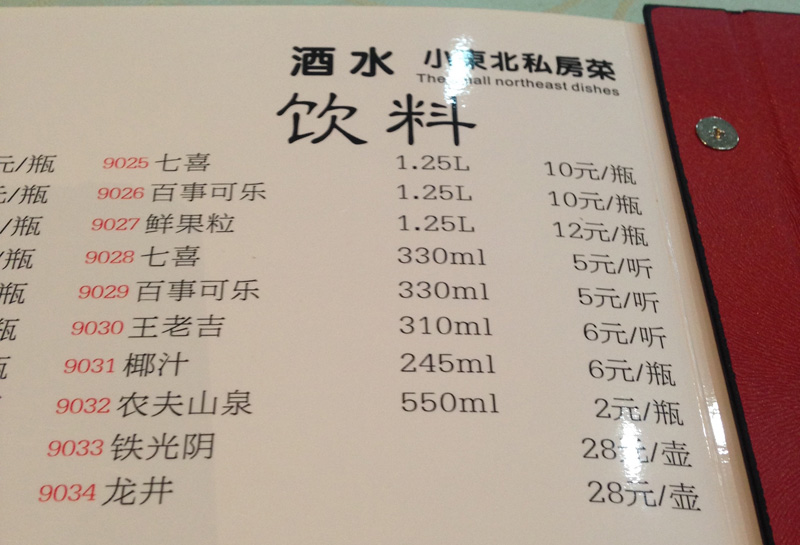Archive for Pronunciation
December 27, 2015 @ 5:15 pm· Filed by Mark Liberman under Pronunciation
 If you look up the pronunciation of poinsettia in the dictionary, you'll find two versions, one that follows the spelling in a regular way (/ˌpɔɪnˈsɛ.tɪə/) and one that would more naturally correspond to the spelling "poinsetta" (/ˌpɔɪnˈsɛ.tə/).
If you look up the pronunciation of poinsettia in the dictionary, you'll find two versions, one that follows the spelling in a regular way (/ˌpɔɪnˈsɛ.tɪə/) and one that would more naturally correspond to the spelling "poinsetta" (/ˌpɔɪnˈsɛ.tə/).
A couple of days ago, a journalist contacted me about this. I knew that the word was formed by adding the usual pseudo-Latin -ia to the last name of Joel Roberts Poinsett, just as Clarke Abel's name gave us abelia and William Forsyth's name generated forsythia. And I knew that there is a common (and even dictionary-sanctioned) alternative pronunciation for poinsettia. But why the i-less version of poinsettia and not (for example) a similar version of forsythia?
Read the rest of this entry »
Permalink
December 27, 2015 @ 9:26 am· Filed by Victor Mair under Names, Pronunciation, Transcription, Translation
[This is a guest post by Jichang Lulu]
The usual Chinese name for the Lena River is 勒拿河 Lèná hé. That's not a particularly felicitous transcription. Lèná rhymes with 圣赫勒拿 Shèng Hèlèná i.e. St Helena; it fails to reflect the palatalisation of the l in the Russian name. An alternative name transcribes the syllable ле with 列 liè, following the usual practice.
Read the rest of this entry »
Permalink
December 17, 2015 @ 3:08 am· Filed by Victor Mair under Pronunciation, Punctuation
I've heard people pronounce this symbol as though it were spelled "asteriks" or "asterix" (and some folks even write it the latter way). It gets really tricky when those who do so try to say it in the plural. And even those who pronounce "asterisk" the way it is spelled seem to have to make a special effort to render the final "s" of the plural audible when they say it.
Read the rest of this entry »
Permalink
December 1, 2015 @ 5:13 pm· Filed by Victor Mair under Acronyms, Pronunciation, Transcription
We've had a recent post on the pronunciation of this lightning rod of a word.
"Pronouncing 'Daesh' " (11/15/15)
From a colleague:
Guthrie's article* states:
"And the vowel which begins the word 'islaamiyya' becomes an 'a' sound when differently positioned in a word, hence the acronym being pronounced 'da’ish' when written in Arabic, and the 'a' coming over into our transliteration of the acronym."
Read the rest of this entry »
Permalink
November 30, 2015 @ 5:21 am· Filed by Victor Mair under Borrowing, Pronunciation
From a colleague:
A question about quinoa. Linguistic, not gustatory or political-economic. How do / would you normally say it?
kee-NO-ah? kwee-NO-ah?
KEE-no-ah? KWEE-no-ah?
KEEN-wah? KWEEN-wah?
keen-WAH? kween-WAH?
(or? )
Read the rest of this entry »
Permalink
November 15, 2015 @ 11:43 am· Filed by Victor Mair under Humor, Pronunciation, Proverbs, Topolects
Chris P sent in the following emojis from WeChat:


Read the rest of this entry »
Permalink
November 5, 2015 @ 12:46 am· Filed by Victor Mair under Names, Pronunciation
Two days ago, we contemplated the wonders of the short Polish-American surname Dzwil. Today we turn to a much longer, but equally wondrous, Hungarian-American surname, the one in the title of this post.
For some seemingly impenetrable Hungarian surnames, it helps an English speaker to have mnemonic devices to produce a passable pronunciation. An example is the surname of the Berkeley Sinologist, Mark Csikszentmihalyi. Mark is the son of the Chicago, and later Claremont, psychologist and management specialist, Mihaly Csikszentmihalyi (in Hungarian orthography that would be Csíkszentmihályi Mihály). Mihaly Csikszentmihalyi is the creator of the concept of "flow", a highly focused mental state.
Read the rest of this entry »
Permalink
November 3, 2015 @ 12:43 pm· Filed by Victor Mair under Names, Pronunciation
For the last few weeks, as I walk by the University of Pennsylvania Museum of Archaeology and Anthropology on my way to work, I've been noticing equipment marked "Dzwil" that belongs to a masonry construction company engaged to firm up the foundations.
Naturally, every time I saw that word I said to myself, "I wonder how they pronounce it".
Read the rest of this entry »
Permalink
October 27, 2015 @ 8:11 pm· Filed by Victor Mair under Language and advertising, Language and politics, Pronunciation
China is in the throes of hammering out its next five-year plan, on the model of the USSR. For China, the current one they're working on is the thirteenth, so they refer to it as 13.5. In Mandarin, that would be shísānwǔ 十三五. Although the Communist bureaucrats think these five-year plans are hugely important, for the common citizen they are dreadfully boring. For non-Chinese looking on, they are worse than boring, so — in an effort to explain and hype 13.5 to English speakers around the world, the Chinese Communist Party has sponsored the making of a glitzy-cutesy video that enjoins viewers to "pay attention to the shisanwu!"
Read the rest of this entry »
Permalink
October 26, 2015 @ 10:27 pm· Filed by Victor Mair under Language teaching and learning, Pedagogy, Phonetics and phonology, Pronunciation
Just a little over a year ago, Mark Zuckerberg unveiled to China and the world that he was willing to speak publicly in Mandarin: "Zuckerberg's Mandarin" (10/23/14).
That post includes a video which allows us to watch and listen to his every gesture and word. Now he's back at it again at the exact same location, Tsinghua University, China's premier engineering and science school:
(Or see: "Mark Zuckerberg’s 20-minute speech in clumsy Mandarin is his latest attempt to woo China," 10/26/15.)
Read the rest of this entry »
Permalink
July 3, 2015 @ 5:32 am· Filed by Mark Liberman under Pronunciation
From AB, MD (CPT, MC, USA):
I have an odd inquiry that I'm hoping you'll oblige. My question is about the preferred pronunciation of apoptosis. I believe the scientist who originally described this phenomenon asked a linguist to invoke an image of an Autumn tree shedding a leaf. We are now in an intense debate about the most accurate pronunciation of this word. As a long time language log reader, I was hoping you could help us settle this fiery debate. How do you pronounce apoptosis? Thank you very much!
Read the rest of this entry »
Permalink
May 31, 2015 @ 12:42 pm· Filed by Victor Mair under Borrowing, Phonetics and phonology, Pronunciation, Topolects
A couple of weeks ago, we encountered the case of Chang Chun-ning being asked by her fěnsī 粉絲 ("fans") on the Mainland to change one of the characters in her name that they weren't familiar with:
"7,530,000 mainlanders petition Taiwan actress to change her name" (5/14/15)
After the incident about the bank in China telling Chang Chun-ning to change her name that was quoted and translated by K. Chang here ("Even the bank wanted me to change my name. I've had enough!!!!!!"), there is another clause that finishes her Weibo (microblog) post, as quoted in the China Times article:
hái fù shàng 'zhuākuáng' de tiētú 還附上「抓狂」的貼圖。
Read the rest of this entry »
Permalink
May 25, 2015 @ 8:48 pm· Filed by Victor Mair under Language and food, Pronunciation, Topolects, Writing systems
In Shanghai, Tom Mazanec recently came across a listing for a kind of tea called Tiě Guāngyīn 铁光阴 (second from the bottom in the photo), which he thought might be a knockoff of the famous Tiě Guānyīn 铁观音. The picture was taken at a restaurant near Fudan University called Xiǎo Dōngběi 小东北 (the name of the restaurant [Xiǎo Dōngběi sīfang cài 小东北私房菜, at the top of the menu] is rather endearingly translated as "The small northeastern dishes").

Read the rest of this entry »
Permalink
 If you look up the pronunciation of poinsettia in the dictionary, you'll find two versions, one that follows the spelling in a regular way (/ˌpɔɪnˈsɛ.tɪə/) and one that would more naturally correspond to the spelling "poinsetta" (/ˌpɔɪnˈsɛ.tə/).
If you look up the pronunciation of poinsettia in the dictionary, you'll find two versions, one that follows the spelling in a regular way (/ˌpɔɪnˈsɛ.tɪə/) and one that would more naturally correspond to the spelling "poinsetta" (/ˌpɔɪnˈsɛ.tə/).

